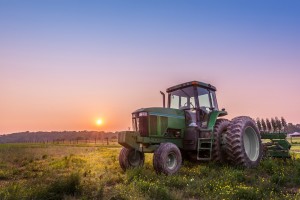 Whether we like it or not, there is only a limited amount of farmland that can sustain the amount of crops that we need to grow to support our populations. This is why engaging in sustainable farming practices is such an important aspect of our agricultural industry. Not only are these practices more sustainable, they are also highly efficient and able to utilize a better yield, over time. While new techniques are being developed all the time, here are several of the most important sustainable farming practices being used in the world, right now…
Whether we like it or not, there is only a limited amount of farmland that can sustain the amount of crops that we need to grow to support our populations. This is why engaging in sustainable farming practices is such an important aspect of our agricultural industry. Not only are these practices more sustainable, they are also highly efficient and able to utilize a better yield, over time. While new techniques are being developed all the time, here are several of the most important sustainable farming practices being used in the world, right now…
Crop rotations
Every time you grow a specific crop on a piece of land, it requires very specific nutrients from the soil. These nutrients will continue to diminish over time if you just grow the same crops. However, this is why many farmers will utilize a crop rotation method over several plots of land. Essentially, this means that one plot of land that grew corn last season will now grow wheat, while the wheat plot of land might now grow carrots, while the carrot plot of land might grow corn. This keeps the soil diverse and allows it to replenish certain minerals and nutrients that are needed by different crops. On top of this, crop rotation methods will keep specific pests from growing into huge populations, since you are now moving the location where these pests can thrive.
Natural pest control
Pests have always been a very specific challenge that must be tackled by the agricultural community. This is no exception, today. However, certain measures that farmers have used to deal with pests over the last couple decades have had unintended consequences for their crops. Sometimes, these fertilizers have had an effect on the soil, which has led to inferior products. On top of that, chemical fertilizers have had a negative effect on natural pest predators, such as bats, birds, and other insects. Farmers who utilize other species of creatures to help deal with pest problems can use the fact that their farm is an ecosystem to their advantage. Having a healthy ecosystem also helps keep the soil fresh, since they provide natural fertilizer.
Cover crops
Another way to cut down on chemical pesticides, keep your soil healthy, and increase your yield, is to engage in a process called cover crops. Leaving plots of land bare and unused during times when you are not growing your primary crop will have have a negative effect on your soil. Instead, growing healthy, yet simple, crops like oats and clover will help enrich the soil, and keep the ecosystem of your farm alive and well. This also helps keep weeds from taking over significant portions of farmland.


Leave a Comment